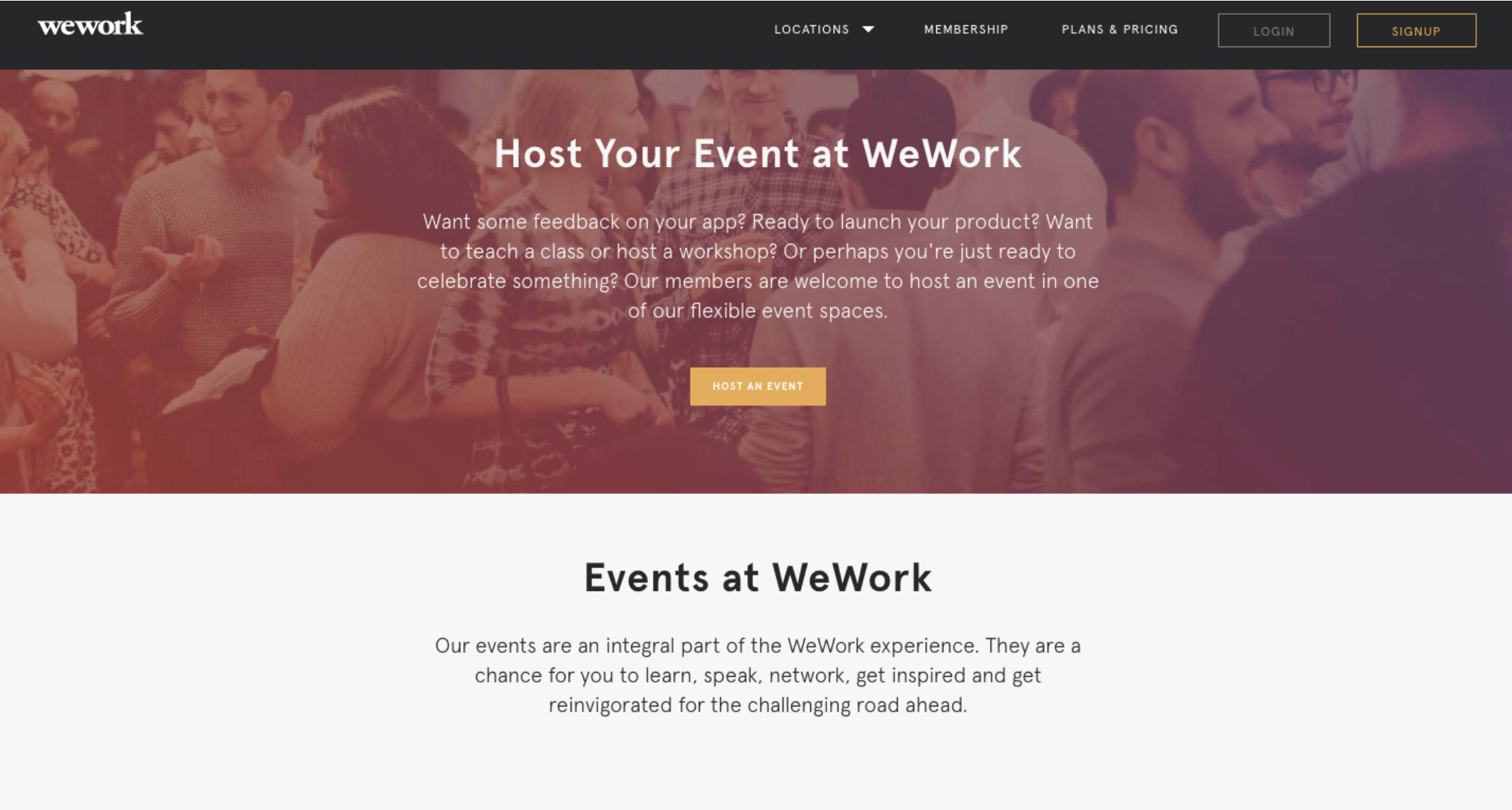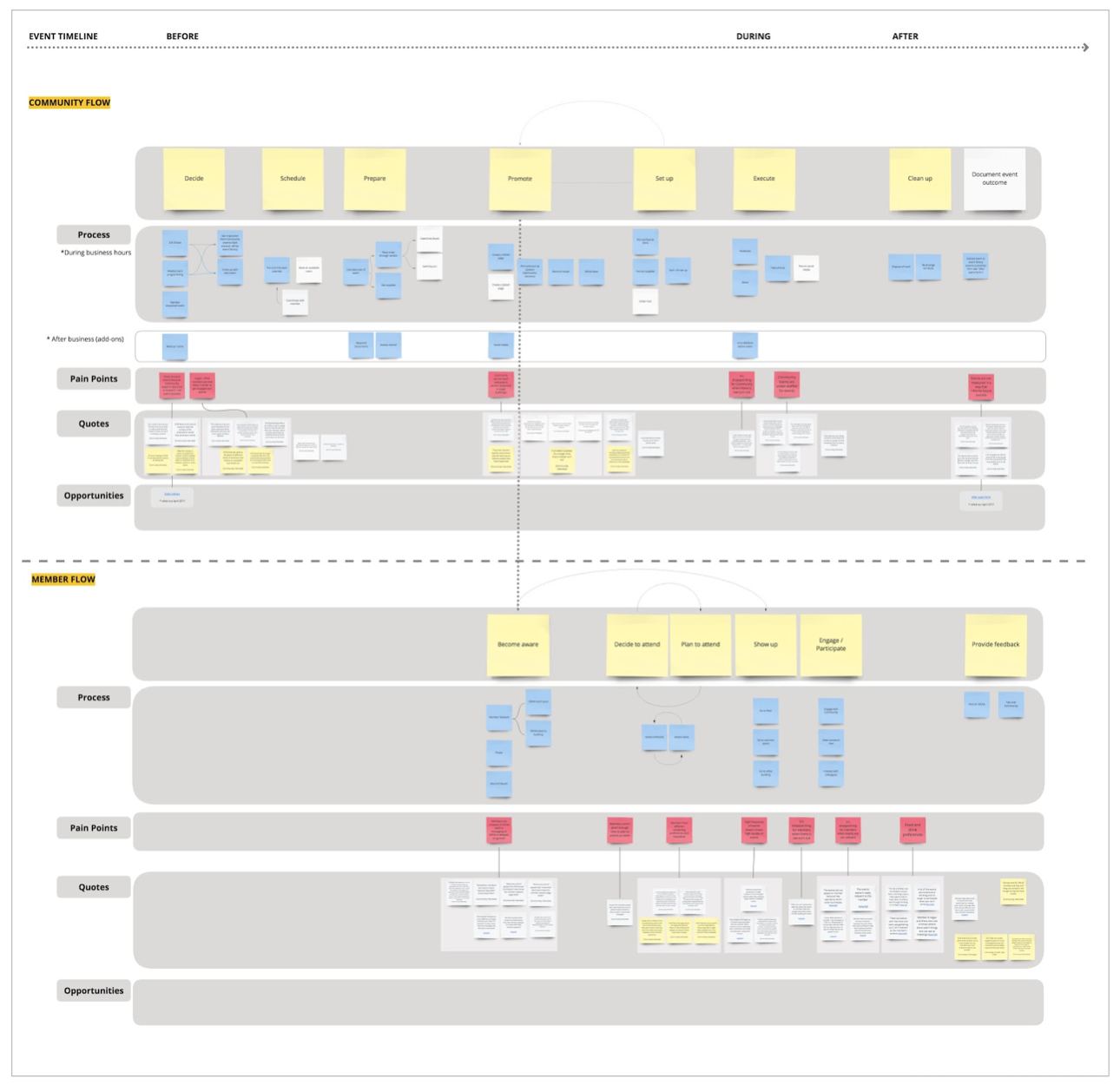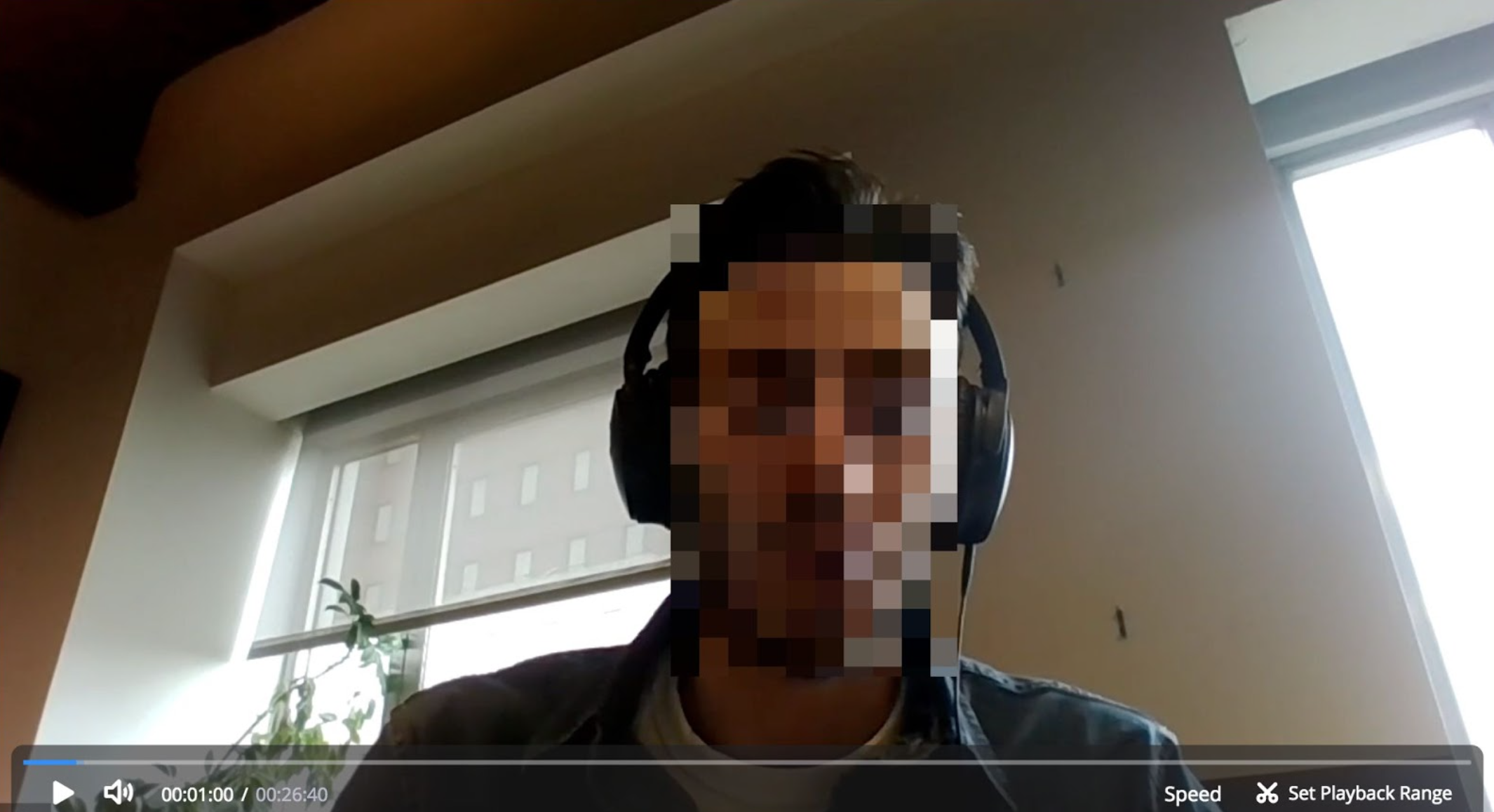WeWork: MEMBER events
In addition to offering world-class office space and amenities, WeWork offers “community”; a benefit that sets it apart from other co-working spaces. An important channel from which WeWork fosters community is events.
These events, available to all members, are curated and hosted by the building’s Community teams using allocated building event budget funds for any food, beverage, equipment or swag supplies and Community teams spend hours daily planning, organizing and hosting (even after work hours) these events.
CHALLENGE & Goals
Events are offered as a means to engage with WeWork; but with no feedback loop, WeWork did not know how engaged members were or if the cost and Community team hours spent were being used effectively.
High level goals of this project were to assess the event experience from both a Community team and member perspective, uncover opportunities to improve events and, ultimately, increase member engagement and event satisfaction while optimizing operational costs.
Role & timeline
I led research at all phases (discovery through validation) and worked alongside several contributors including: a service design lead, community team members (event leads) and several stakeholder teams including Partnerships and Events, Member Engagement and Community Operations.
Exploration and experimentation were conducted November 2016 - April 2017. A prototype “event library” and several event standards were created and rolled out company-wide on April 2017.
High level research questions:
What is working / not working in terms of the event experience?
How are events selected within buildings?
What does “success” for an event mean?
What are the touch points involved in events?
Secondary research
To get a sense of current landscape, I reviewed existing internal Community team training materials, event-related content within the WeWork app (visible to members), and communication about events on the external-facing website. This review helped uncover the story of how Community team members understood and were trained on events (in terms of process and goals) and how members were introduced to events.
To get more color on the member’s experience, 308 interviews from exiting members were reviewed for mentions of events (via keywords such as “event”, “community”, “happy hour” among others) to assess how members felt about events. These mentions were analyzed and codified into several feedback buckets (i.e. including at a high level: “positive” / “pain point” and then subcategorized within to point to specific topics).
PrimARY RESEARCH
In addition to reviewing exit interviews, 6 “active” members (current WeWork members) and 15 Community team members were interviewed in 30-54minute one-on-ones to probe deeper on the process and experiences.
2016 events on wework.com
WeWork app
SYNTHESIS
To help visualize emerging patterns, I created a journey map that showed the entire flow of a Community-hosted event from both the Community and member experience, highlighting steps within their respective flows, pain points (with associated quotes) and opportunities for improvement.
Community teams lacked the support and tooling for event planning, organizing, execution and tracking (this was done through using multiple tools and spreadsheets)
Community lacked a source to pull inspiration from when crafting events for their building and often felt overwhelmed or too bogged with other tasks to allocate time for this
Members were dissatisfied at the quality of events because they did not feel they were relevant to them
Events journey map (Community team & member flow)
The most striking observation was the disconnect between how internal staff evaluated the success of an event and how WeWork measured event success. Internal staff members were evaluated on the amount of events hosted in their respective building (quantity over quality); However, when asked how Community staff would define success it was unanimously focused on participation and attendance of an event - quality over quantity. This was a belief shared with members who felt that the volume of events led to ones that lacked depth and care from Community teams.
“There are a lot of events but no one is attending ... maybe because there are so many? I would rather have less but in-depth events rather than more but shallow ones.”
“I think it’s [success is] when a lot of members come and participate and have a good time ... but we have a weekly quota and it can be hard to carve out time to come up with good ideas.”
Refined insights
High event frequency does not produce high quality events.
Members feel overwhelmed by the volume of events and notice that the quality and care suffers because of the volume. But Community teams are given quota goals for events and as a result put less effort towards making an event higher quality in favor of throwing events to reach the goal (for example, stretching their budget across a lot of events and opting for cheaper or no event supplies for some events). Community feels this “watering down” of events helps them reach what WeWork defines as success.Events are not measured in a way that informs future event success.
While both Community team and members feel that attendance rate are indicators of success, RSVPs through event pages do not accurately reflect attendance. Additionally, Community evaluates events by other dimensions (i.e. budget, effort to organize and promote, etc) but these aspects are not recorded or tracked anywhere to help decide if the event should be repeated in the future - for their own building as well as for other buildings who may be thinking of hosting that particular event.There are dimensions to member event interest.
Members don’t attend events that they don’t feel are relevant to them. While the Community team regularly interacts with their members and anecdotally knows their interests, there is no designated place for these interests to be referenced and used as inspiration.
Prototype testing
Insights were shared with key stakeholders and together we ideated on solutions to these interesting challenges with events. Some low hanging fruit included removing the weekly event quota; however there still remained larger issues and questions such as how will we measure events in a way that informs future event success?
In response to this question, an “event library” prototype was created. It was housed within Airtable because it was a tool that could be easily accessibly and centralized for Community team members and had the features we needed to collect and visualize event data. Additionally, it could be embedded in the internal company-wide wiki which housed our Community standards (references that the Community team could use to complete day-to-day tasks).
Form for Community team to fill out
Event library prototype
The event library was was a collection of global events from Community teams in every building. All a Community team member had to do was, during an event, take a photo of the event at the height of it and then, after an event, fill out a form that included all the important details and submit.
Event Library Roll out
The event library was rolled out in phases; first with a beta group of 5 U.S. WeWork buildings. From this, we collected feedback on what types of information was crucial to record - especially in the context of informing other teams whether to repeat the event.
The process was rolled out company-wide on April of 2017 (through an event lead seminar, 1:1s, an internal Community newsletter and an online course on events standards and best practices).
IMPACT & Implications
Housing the event library through Airtable was always meant to be temporary. While it was able to collected data, the ultimate goal was to gain design and development resources to integrate the library into Community tools.
In 2017, WeWork acquired MeetUp. This research was shared with that team and helped served as foundational research for scaling up events as well as a template for tracking and measuring event success.
In 2018, the data collected helped jump start efforts by an internal team working on event recommendations. This initiative will create a smarter system for how members get events updates as well as how Community teams will receive event recommendations.
Though still a work in progress, the technology design teams are beginning to work on a new events experience flows using this recommendations system on both the internal Community-facing tools as well as member-facing WeWork app.








